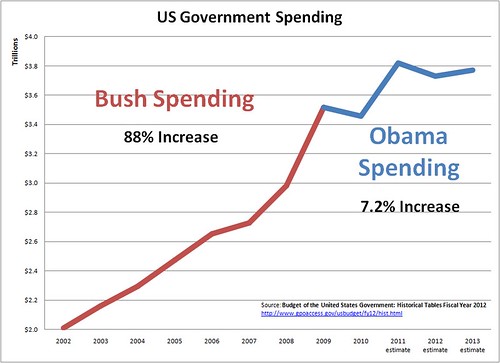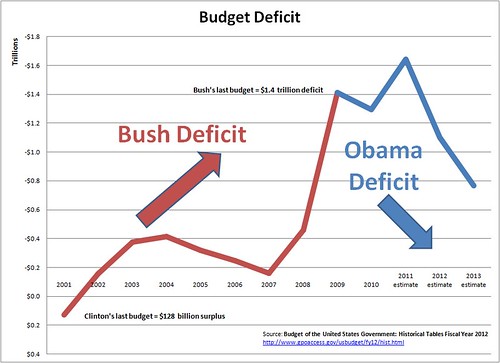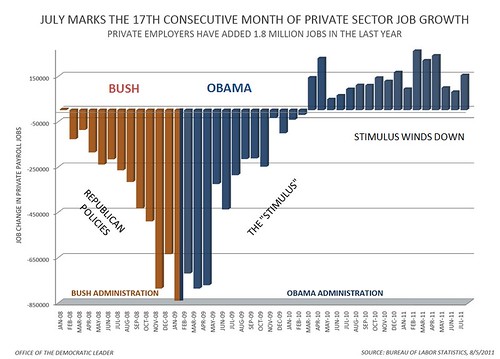Find it here: http://weeklysift.com/2011/08/29/barack-can-we-talk/#comments
--Kim
The Weekly Sift
making sense of the news one week at a timeBarack, Can We Talk?
It's me. I'm here in the Democratic base. It's been a little testy between your people and my people lately, and I'm concerned that things might get out of hand. Worse, I worry that you don't understand why.It's not that we don't understand how government works, or that democracy runs on compromise. And it's not that we thought you were some kind of messiah, who could turn the country around just by pointing in a new direction. (That slam on us was originally a Republican talking point, remember?)
Let me try to explain how it looks from our point of view.
You know I wouldn't use George W. Bush as an example unless I were desperate, right? Well, in 2005 Bush went all out promoting his Social Security privatization plan. Bankruptcy, personal accounts, blah, blah, blah.
The country hated it. So what did Bush do next? He could have decided that (having put so much effort into raising the issue) he had to "get something done". That would require Democratic support, so he could have adopted a Democratic idea, like extending Social Security taxes to all wages rather than just the first $100K or so.
And then he could have sold the "compromise" package to the public by adopting Democratic rhetoric maybe by pointing out how well the wealthiest Americans had done over the past 20 years, and how this bill was just asking them to "give something back" for all the benefits the American economy had given them.
Can't picture it, can you? Me either and that's the point. Dumb as he was, President Bush understood two important things:
- The Republican Party stands for something. You can't take any old idea and call it "Republican" without screwing up the brand.
- The political struggle isn't just about writing laws, it's about defining reality. Republican success rests on a collection of public misconceptions and faulty frames. As long as the public believes that stuff, they win.
Brands. Every Republican candidate starts every campaign with an advantage: All he has to do is say "Joe Shmoe, conservative Republican" and everybody knows who he is and what he stands for. Low taxes, less regulation, militarism, traditional social values love that image or hate it, we all recognize it.
Democrats, on the other hand, have to establish themselves. That takes time and money, and it makes us vulnerable to mud-slinging and swift-boating.
Branding has to start at the top, and Democratic leaders haven't been up to the job for decades now. Every time a Democratic president sounds like he's making up his mind on the fly, we're that much further away from having an effective Democratic brand.
Reality. Listen to the Republican presidential candidates: Global warming isn't real. Spending cuts create jobs. Rich people are job creators. The unemployed are lazy. Unions hurt working people. Government can't create jobs. All government spending is waste. The minimum wage is too high. The stimulus failed. Protecting the environment is a luxury we can't afford. Roads, schools, and parks are luxuries we can't afford. Medical care for the old and poor is a luxury we can't afford.
That's the sound of reality being defined. When we take on issues one at a time, we fight on a terrain Republicans have been shaping for decades. That's why Bush never adopted Democratic rhetoric, and why it kills us when Republican rhetoric comes out of your mouth.
What we need from our Democratic president isn't just a few more dollars for infrastructure or the unemployed, we need a defense of reality.
Compromising without fighting. Sure, Congress needs to pass budgets, and you have to compromise with Republicans to do that. But again and again, the Republicans remain faithful to their vision and you come out of the compromise owning the package. If the result turns out to be inadequate in some way, the public thinks the alternative is to do what the Republicans wanted.
Look at health care: Every real Democrat knows that the right answer is single-payer. It works in Europe. It's cheaper and delivers better care. Sure, you couldn't have gotten that through Congress. I know. I understand. But because you never proposed it, Democrats had no platform for talking about it. The compromise that came out of Congress is now ObamaCare (even though it's based on the Mitt Romney/Heritage Foundation plan in Massachusetts), and the only alternative the public knows about is the Republican do-nothing plan.
Look at the stimulus. Liberal economists said it needed to be bigger and have less tax cuts. But because you never proposed that, the compromise that came out of Congress is the Obama stimulus. Here's what Paul Krugman predicted in March, 2009:
- It's September 2009, the unemployment rate has passed 9 percent, and despite the early round of stimulus spending it's still headed up. Mr. Obama finally concedes that a bigger stimulus is needed.
- But he can't get his new plan through Congress because approval for his economic policies has plummeted, partly because his policies are seen to have failed, partly because job-creation policies are conflated in the public mind with deeply unpopular bank bailouts. And as a result, the recession rages on, unchecked.
- But he can't get his new plan through Congress because approval for his economic policies has plummeted, partly because his policies are seen to have failed, partly because job-creation policies are conflated in the public mind with deeply unpopular bank bailouts. And as a result, the recession rages on, unchecked.
Repeating false rhetoric. The reality-battlefield that we're losing worst on is economics.
To you and me, it's obvious that the economy has a demand problem: Businesses aren't hiring because they have no customers. Give them a tax break, let them endanger their workers or dump more chemicals in the groundwater and they still won't have any customers, so they still won't hire.
In these situations, government needs to create demand by spending. We have unemployed people, work that needs doing (bridges to rebuild, an electric grid that badly needs an upgrade), and investors willing to lend the government money at interest rates lower than inflation. It's a no-brainer: Borrow the money to hire the people to do the work.
You know why we can't mobilize public support behind that program? Because conservatives have convinced large chunks of the public to frame the problem wrong. The worst frame out there is the government/family analogy: Families have to cut back in hard times, so government should have to cut back too.
You know that's nutty. Just like Joseph told Pharaoh, government has to save when everyone else is spending and spend when everyone else is saving. So why do you say things like this?
- Families across this country understand what it takes to manage a budget. Well, it's time Washington acted as responsibly as our families do.
Another false Republican frame is that businesses aren't hiring because they lack "confidence". They then link doubt to debt, and so justify the crazy idea that we can create jobs by cutting spending. This kind of nonsense needs to be called out at every turn.
Instead, a White House spokesman
- repeatedly said that deficit-reduction was crucial in generating economic confidence. Confidencehe repeated this word many times.
If you have to compromise for the good of the country, compromise. But Republicans can't make you adopt their rhetoric, no matter how many seats they have in Congress. Hold them responsible for their part of every compromise by refusing to stop talking about what you would do if they would let you.
Don't embrace the compromises, because that lets Republicans make their trade-offs for free: Every bit of deficit reduction costs jobs. Make them own that.
Talk about this: Full employment. Single-payer health care. Clean energy. Racial justice. Carbon reduction. Smart electric grid. Efficient mass transit. Education and opportunity for everyone.
Maybe we don't see how to implement it all right now, but we should never lose sight of it. If not this year, next year. If not this decade, next decade. Don't tell us we can't.
Yes we can.

![[]](http://www.truth-out.org/sites/default/files/082911g.jpg)



![[]](http://blogs-images.forbes.com/stevedenning/files/2011/08/Chart-of-source-ofUS-products-300x188.jpg)
![[]](http://images.forbes.com/media/2011/04/08/0408_fastest-retailers-hh-gregg_400x400.jpg)
![[]](http://images.forbes.com/media/2011/06/07/0607_samasource_174x97.jpg)
![[]](http://thinkprogress.org/wp-content/uploads/2011/08/alec_gw_faq.png) The fight against global warming pollution requires the investment of everyone, including the world's multinational corporate giants. Many companies have taken official stances on climate pollution, pledging to reduce their greenhouse footprint in order to reduce the threat of a destabilized climate.
The fight against global warming pollution requires the investment of everyone, including the world's multinational corporate giants. Many companies have taken official stances on climate pollution, pledging to reduce their greenhouse footprint in order to reduce the threat of a destabilized climate. 

